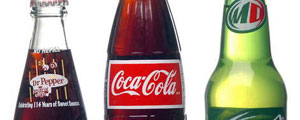
The intake of sugar is known to complicate the body’s ability to effectively manage weight.
Doctors on call
Sugar in the bloodstream disrupts hormone function and when consumed to excess, sugar is stored in the body as fat.
Weight gain — especially increased abdominal fat — is a known risk factor of serious health conditions like diabetes and heart disease.
Artificial sweeteners like aspartame and saccharin are no better.
They have been linked to a horde of health conditions too, ranging from headaches to stroke. Soda, other sugar-sweetened beverages and sugar-dense foods are closely linked to the nation’s growing health problems.
Soda linked to heart attacks Numerous studies confirm that consuming even one soda a day can significantly increase men’s risk of coronary heart disease and death.
According to a study published earlier this year, men who drank the most soda “had a 20% higher relative risk of coronary heart disease”. Regardless of age, exercise and smoking habits, body mass index, alcohol consumption and family history of heart disease, frequent consumption of soda was directly associated with heart attack risk in men.
- Chamisa under fire over US$120K donation
- Mavhunga puts DeMbare into Chibuku quarterfinals
- Pension funds bet on Cabora Bassa oilfields
- Councils defy govt fire tender directive
Keep Reading
David Ludwig, (MD, PhD) of Children’s Hospital Boston, said “Sugar in all its forms may be the single most important dietary cause of obesity and heart disease . . .” By replacing sugar-loaded regular soda with naturally sweetened alternatives, the risk and occurrence of these conditions can be greatly reduced. Artificially-sweetened drinks no better Artificially-sweetened drinks do not provide a safe alternative. Studies confirm that drinking artificial sweeteners vastly increases a person’s risk of stroke, heart attack and death by vascular diseases like peripheral artery disease and aneurysm.
By consuming two artificially-sweetened drinks daily, a person’s waistline will grow by about 500% more than someone who drinks pure, clean water.
According to research, fatty tissue cells have receptor for sweetness. This suggests that, even without calories, “artificial sweeteners could cause weight gain by directly stimulating the development of new fat cells”.
Ludwig avoids artificial sweeteners and recommends them “only as a transitional aid to wean people off sugary beverages”. A sugar substitute is an artificial food additive that duplicates the effect of sugar in taste, but with less actual nutritional value. A natural substitution that is readily available in many grocery stores is Xylitol or Stevia.
Stevia is much sweeter than sugar and has none of sugar’s unhealthy side effects. It is also a great, safe alternative to help prevent and manage the development of type-2 diabetes.
In nature, sweet foods are packed with calories, so the brain naturally prepares its metabolism to burn those calories. However, research has shown that when the sweetness is present, but calories are not, metabolism slows to a crawl.
The brain is then tricked into eating more, and because metabolism has slowed, more calories are then stored as fat.
People often say their metabolism slows as they age, but much of this slowing is self-inflicted. Storing fat is a red flag for diabetes, heart disease, cancer and a vast array of other health conditions such as chronic pain and arthritis.
Sugary, sweet drinks and foods are the ultimate example of living in the moment and not thinking about the future. We must enjoy the present without sacrificing the future.
Our choices today will impact our outcomes tomorrow.
This column is directed by your questions, comments and inquiries. Please email [email protected] for additional information.











